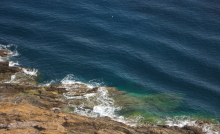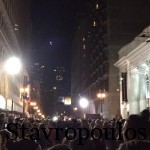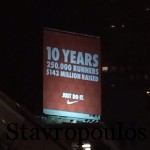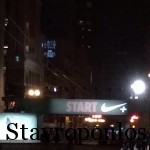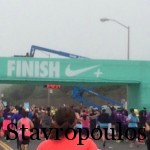On 20 July 1974, Turkey invaded Cyprus and Greece was at war. My mother and I were visiting my relatives in Greece. My uncle took me to the American Embassy to find out what to do in this time of crisis in Greece. I learned that while I could be evacuated since I was an American citizen by birth, my mother was considered a Greek National, even though she had American Citizenship. Thus, Greece as her country of birth could retain her over any objections by America. If Greece made that decision, I would return to the United States, alone, where I had no family. I was terrified. I learned a lesson in international law the hard way. I lived it.
International law differentiates between citizens and nationals. A citizen can be by birth or naturalization. A national is someone born in a country, but not necessarily a citizen. The reasons can vary.
My uncle told us a story of a young man who had come to Greece on his honeymoon only to be arrested at customs. The man had left Greece as a baby and was a naturalized citizen of the United States. While not a citizen, Greece considered him a national and arrested him for not fulfilling his mandatory military service. Everyone laughed at the story when he told us. I no longer thought it funny.
In my mother’s case, she relinquished her Greek citizenship and became an American Citizen. But, under international law, because she was born in Greece, she was a Greek national. If Greece decided to exert jurisdiction over her, America could protest through diplomatic channels but could not act. Greece held the trump card over whether my mother could leave Greece. I had no family in the United States, without my mother, what would happen to me?
I sat in my aunt and uncle’s house in Piraeus listening to the American radio station for any evacuation orders. I was worried sick that the order would come and my mother would have to remain. The television in the parlor was on but the government controlled stations only showed costumed dancers performing Greek traditional dances or pictures of historic sites with music playing in the back ground.
My aunt would enter the room and glare at the TV saying, ‘until they figure out what to tell us they want us to feel patriotic in our ignorance.’ I sat. Watched. Listened. And grew up a lot. Learned as much as I could from my family.
In 1974, Greece was ruled by a military junta, in Greek, Xouvta. The Colonels Regime as it was also called, was a right-wing military dictatorship that came into power with a coup d’état on 21 April 1967. The Junta imposed martial law, censorship, mass arrests, beatings, torture and exile.
My uncle told me with pain still lining his face how he tried to get permission to take my cousin to Bulgaria for an operation, the anti-communist Junta denied the request. A small example of what the dictatorship did to repress the Greek populace during their reign.
Months before my mother and I arrived in Greece for our summer vacation. The students at the Polytechnic University (Πολυτεχνείο) in Athens began a massive demonstration against the Junta on 14 November 1973.
I remember watching the student protest at the Polytechneion on American television. This student protest was preceded by protests by law students at the Law School on 21 February 1973. I remember watching the Polytechneion protests. The grainy footage on our black and white television showed the massive gate of the university chained shut. The students waiving their arms in protest behind it. The chants in Greek. My mother didn’t worry about it affecting our summer trip months away. So removed in American, she had no idea about the real state of affairs in Greece. Her family unable to tell her for fear telephones were bugged and mail read.
The students of the Polytechneion barricaded themselves in and broadcast from their radio station across Athens. Thousands of people joined them. The streets surrounding the university were crowed with supporters, young and old.
A curfew was declared. Then on 16 November, lights across the city were cut off. More and more tanks and soldiers surrounded the university and in the early morning hours of 17 November 1973, the first tank crashed through the gates of the Polytechnic violently crushing the student protest.
Among the Junta leadership, the most right wing generals, upset with the state of affaires, instigated a counter-coup, bringing Taxiarkhos Dimitrios Ioannides into power. Wanting to unite Cyprus with Greece, Ioannides attempted a coup against the president of Cyprus on 15 July 1974. The coup became the pretext for the subsequent Turkish invasion of Cyprus on 20 July 1974.
From the whispered conversations around my aunt and uncle’s table, I learned how we had reached this moment where Cyprus had been invaded, Greece was at war and American might issue an evacuation order of Americans from Greece. An evacuation that would get me out of Greece, with or without my mother.
Telephone lines worked sporadically. Most of what we learned was through word of mouth. Few people felt courageous enough to venture far from their families. My uncle was one. He rode his motorcycle through Pireaus connecting with friends. Without reliable information, your ability to make decisions is hampered. You don’t know what is happening two streets over let alone miles away in the government offices in Athens.
My godfather in the United States called as often as he could get through. He wanted to make sure my mother understand the severity of the situation. He had a short wave radio and was able to get sporadic radio reports from European broadcasts and became fearful with the news that he received. He started out counseling my mother to leave with me immediately. With each refusal by my mother, he grew more heated in his arguments. He worried so much about us and whether we might become trapped in Greece that by the end of the conversation his language grew more and more colorful. He changed tactic. When he next called, he asked me. He urged me to get our passports and get to the airport where he would have tickets ready. My mother snatched the telephone away and told him no and hung up. My aunt hovered nearby concern etched over her face, unwilling to interfere with my mother’s decision because my mother was her older sister. But she feared for our safety. Having lived under the Junta, she understood better the risks my mother was taking. My father’s side of the family is known for their stubbornness. I’ve always been proud that I’m like them. Now I wondered if I didn’t get it from both sides.
Time passed slowly. The ticking of the clock, static on the radio, the drone of patriotic music from the television, the whispers of huddled neighbors floating through the open windows of hot summer days became the white noise of our existence. My aunt and uncle’s house was small and I slept on the pull-out bed in the parlor, so the minute I awoke, the television was turned on.
I don’t know how many hours, days or minutes passed before the news finally broke that the Junta had fallen. People celebrated in the streets. Television went live and we were told a new government was in place. Newspaper headlines announced the end of the Junta tyranny.
I remember playing outside, when the ground shook and a distant rumbling filled the air. I ran with the other children and adults to the main road. This road led from the center of Athens into Piraeus. With other stunned Greek citizens, I watched as tank after tank, anti-aircraft missile launchers, and other massive military machinery moved through city streets. Cars stopped and drivers stood outside their vehicles and watched with us. Women held hands to their faces and men huddled in groups talking. My aunt materialized by my side. She said, ‘what did the Colonels need all of that in the heart of Athens.’ I said to her, ‘isn’t that for the war?’ She shook her head sadly and said, ‘no that was for the students and for us.’
In the next few weeks, Greece had a new government fulfilling its destiny as the nation that created democracy. When I returned to the United States I studied and learned as much as I could about international law and politics eventually majoring in it at University of California Berkeley. I became a news junkie wanting to know what was happening in the world and especially in Greece. But I learned fundamentally that politics is like a onion with many deeply hidden layers.
In the summer of 1974, I saw the final days of a military dictatorship, saw the birth of a new government in Greece and learned a lesson about international law. Mostly I cherished the freedom I once took for granted as an American.
Years later returning to Greece on another visit, my cousins and I were at a night club when they pointed out an older man happily partying at a nearby table with lots of booze, food and friends. He was well dressed, good-looking, completely at ease. My cousins said he had been one of the torturers under the Colonels Regime. Astonished I blurted out, ‘why isn’t he in jail?’ One of my cousins retorted, ‘we don’t have enough prisons for all the torturers.’
Later that year one of the television stations in Greece ran a mini-series dealing with the student protest at the Polytechneion. The series showed actual and dramatized footage of the protests. I saw the grainy footage from the tank crashing through the gate taken by a foreigner. Then the dramatized arrests afterwards along with the brutality of torture and rape. Survivors of that time told their stories. As I watched I wondered which one of the depicted torturers was the happy-go-lucky man at the night club.
Back in that summer of 1974, a few days after the new government was sworn into office, my mother and I left Greece together.
I will always remember the events that made me a witness to history in Greece.
I have visited Greece many times since 1974, and this visit was not the last during a newsworthy point in Greece nor the last time I would witness history.
But it was the first.
